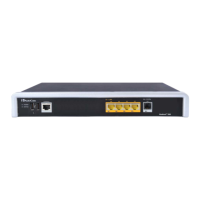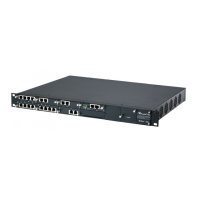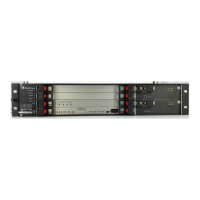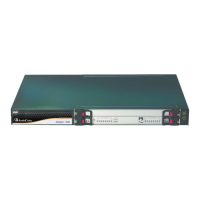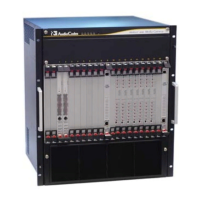Version 7.2 173 Mediant 1000B Gateway & E-SBC
User's Manual 13. Security
Parameter Description
The IP address of the sender of the incoming packet is
trimmed in accordance with the prefix length (in bits) and then
compared to the parameter ‘Source IP’.
The default is 0 (i.e., applies to all packets). You must change
this value to any of the above options.
Note: A value of 0 applies to all packets, regardless of the
defined IP address. Therefore, you must set the parameter to a
value other than 0.
Start Port
start-port
[AccessList_Start_Port]
Defines the first UDP/TCP port in the range of ports on the
device on which the incoming packet is received. From the
perspective of the remote IP entity, this is the destination port.
To configure the last port in the range, see the 'End Port'
parameter (below).
The valid range is 0 to 65535.
Note: When the protocol type isn't TCP or UDP, the entire
range must be provided.
End Port
end-port
[AccessList_End_Port]
Defines the last UDP/TCP port in the range of ports on the
device on which the incoming packet is received. From the
perspective of the remote IP entity, this is the destination port.
To configure the first port in the range, see the 'Start Port'
parameter (above).
The valid range is 0 to 65535 (default).
Note: When the protocol type isn't TCP or UDP, the entire
range must be provided.
Protocol
protocol
[AccessList_Protocol]
Defines the protocol type (e.g., UDP, TCP, ICMP, ESP or Any)
or the IANA protocol number in the range of 0 (Any) to 255.
The default is Any.
Note: The parameter also accepts the abbreviated strings
"SIP" and "HTTP". Specifying these strings implies selection of
the TCP or UDP protocols and the appropriate port numbers
as defined on the device.
Use Specific Interface
use-specific-interface
[AccessList_Use_Specific_Interface]
Determines whether you want to apply the rule to a specific
network interface defined in the IP Interfaces table (i.e.,
packets received from that defined in the Source IP field and
received on this network interface):
[0] Disable (default)
[1] Enable
Note:
If enabled, then in the 'Interface Name' field (described
below), select the interface to which the rule is applied.
If disabled, then the rule applies to all interfaces.
Interface Name
network-interface-name
[AccessList_Interface_x]
Defines the network interface to which you want to apply the
rule. This is applicable if you enabled the 'Use Specific
Interface' field. The list displays interface names as defined in
the IP Interfaces table in ''Configuring IP Network Interfaces''
on page 142.
Action
Action Upon Match Defines the firewall action to be performed upon rule match.

